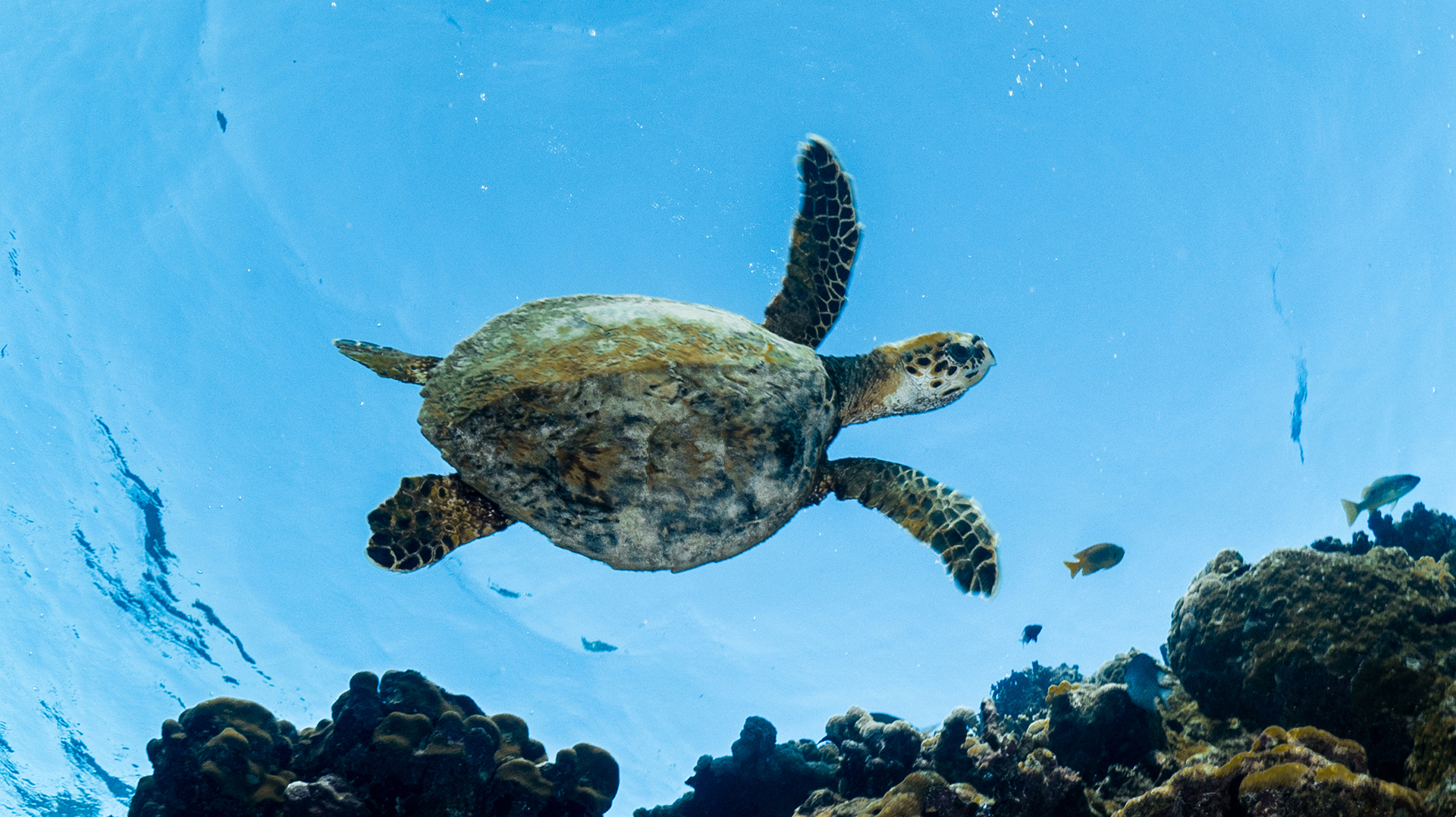Innovation meets preservation: Technology's impact on Red Sea biodiversity conservation
As we celebrate International Day of Biological Diversity, Al Wajh Lagoon – the home of The Red Sea destination – emerges as an ecological hotspot. Spanning a vast area, the lagoon hosts a rich tapestry of habitats: mangroves cover 20km², seagrass meadows extend over 50 km², and complex coral reefs cover nearly 100km².
This mosaic of biomes sustains a tremendous scale and variety of life, from vibrant corals and elusive fish to majestic dolphins, peaceful dugongs, and elegant rays. Moreover, the islands scattered across the lagoon serve as vital breeding grounds for 25,000 pairs of seabirds and provide a haven for sea turtles, which lay around 600 nests every year.
With such an abundant yet sensitive ecosystem to protect, Red Sea Global (RSG) has pioneered innovative technological approaches to monitor, study, and implement protective measures to safeguard the lagoon’s rich ecosystem.
Since 2021, our marine and island bird teams have recorded 23 threatened species, six of which are considered endangered and four critically endangered. The latter category representing ‘an extremely high risk of extinction in the wild’ according to the International Union for Conservation of Nature (IUCN).
Protecting these species is essential, but some of them – those for which Al Wajh Lagoon is especially important – have become RSG’s highest conservation priorities. Over the past two years, we have implemented significant conservation efforts for Sooty falcons, Green and Hawksbill sea turtles, Indian Ocean Humpback dolphins, Dugongs, and Halavi guitarfish.
For example, the installation of 30 artificial Sooty falcon nests in the last two years marked the first successful use of an artificial nest by this species globally. By satellite-tracking 30 falcons to their overwintering areas in Madagascar and back, we've discovered that adults typically revisit the same nests each year, while juveniles actively seek suitable nesting spots. Those young birds, just entering the breeding population, will be the ones to benefit most from the increased availability of good nesting sites provided by our artificial nests.
For sea turtles, we’re enhancing the quality and safety of their nesting beaches. Earlier this year, we cleared 44 tons of long-accumulated debris from their crucial nesting sites on Breem and Waqadi islands.
Additionally, we are exploring various methods to enhance the quality of nesting beaches and actively tracking turtle movements. This tracking aims to improve our understanding of their key foraging and inter-nesting habitats, which we expect to be designated as special management areas within our Marine Protected Area.
For the Halavi guitarfish, we’ve identified key nursery areas around Quman and Osh Al-Sharki islands. This species populates the entire lagoon, serving as a critical refuge for these endangered creatures. In collaboration with KAUST, we secured recognition of the lagoon as a designated Important Shark and Ray Area last year – one of only three globally for this species.
For certain species, such as Dugong and Humpback dolphin, effective protection relies on spatial management, which refers to the identification and management of crucial foraging, resting, and nursery areas. This requires extensive data to understand the distributions, movements, and behaviors of native species, a task often underestimated in complexity and scale.
At RSG we are fortunate to have highly dedicated individuals who expertly leverage advanced technologies essential for managing the vast and complex local ecosystem. This includes not only satellite tracking of birds and sea turtles to understand their movements and nesting ecology, but also acoustic tracking of Halavi guitarfish to identify their nursery areas, as well as the use of drones and, increasingly, artificial intelligence (AI) systems.
We utilize AI in the analysis of coral reef surveys. Our team surveys over 180 coral reef sites every year. Until very recently it would have taken many months for a human to analyze the thousands of images generated by those surveys, making it almost impossible for us to sustain that level of monitoring.
However, by employing a machine learning tool called CoralNet, we can automatically analyze all those images overnight. Developing reliable systems is still time-consuming; in this case, we trained it with human-generated data from 1,500 images and then validated its performance to be equivalent to skilled human analysts. Nonetheless, analytical AI and automated survey technology are rapidly evolving, promising to transform ecological monitoring and conservation over the next few years.
Looking ahead, integrating technology and conservation promises a new era of ecological monitoring and preservation. As we continue to unravel the complexities of this unique ecosystem, our commitment to protecting The Red Sea's biodiversity remains steadfast for generations to come.
About Red Sea Global
Red Sea Global (RSG) is a vertically integrated real estate
developerwith a diverse portfolio across tourism, residential,
experiences,infrastructure, transport, healthcare, and services. This
includes theluxury regenerative tourism destinations The Red Sea, which
beganwelcoming guests in 2023, and AMAALA, which remains on track to
welcomefirst guests in 2025.
A third destination, Thuwal Private Retreat openedin 2024. RSG has
also been entrusted with refurbishment works at Al WajhAirport, focused
on upgrading the existing terminal and infrastructure,and building a new
international terminal.
RSG is a PIF company and acornerstone of Saudi Arabia’s ambition to
diversify its economy. Acrossits growing portfolio of destinations,
subsidiaries, and businesses, RSGseeks to lead the world towards a more
sustainable future, showing howresponsible development can uplift
communities, drive economies, andenhance the environment.
www.redseaglobal.com
RSG is the visionary company behind some of the world’s most ambitious
development ventures, including luxury regenerative tourism destinations
such as The Red Sea and AMAALA.
Across its portfolio, RSG leverages the most innovative concepts,
strategies, and technologies to deliver projects that actively enhance
the wellbeing of customers, communities, and environments.



